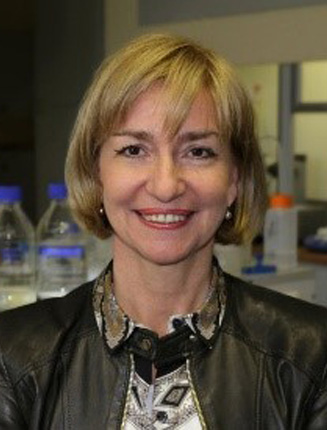Indian PI Name & Affiliation:
Dr. Amit Kumar Jaiswal
Professor
Centre for Cellular and Molecular
Theranostics
Austrian PI Name & Affiliation:
Prof. Dr. Karin Stana Kleinschek
Head of the Institute
Institute for Chemistry and Technology of Biobased Systems (IBioSys)
TU Graz
Funding Agency: Department of Science and Technology (DST)
Scheme: International Cooperation Division - Indo Austria (WTZ)
Sanctioned Amount : Rs. 6,60,000
Duration of the Project: 2 years

Dr. Amit Kumar Jaiswal

Prof. Dr. Karin Stana Kleinschek
Graphical Abstract

Project Description
In many countries including India and Austria, where animal models are banned from testing cosmetic products, this research is significant as it addresses the need for sustainable biomaterials in skin tissue engineering and the development of a skin substitute for testing cosmetic products. The investigative strategy involves 3D bioprinting of skin layers, histological evaluation, nanoparticle preparation and characterization, and toxicity assessment on the 3D bioprinted skin equivalent. The project involves collaboration between research groups in India and Austria, with complementary expertise and experiences to fulfil all the objectives of the project.
The investigative strategy appears adequate as it combines expertise in biomaterial development, 3D bioprinting, and nanoparticle synthesis. The nature of the results is expected to be impactful, with the development of a skin substitute for cosmetic testing and the generation of new knowledge through international publications. The project aims to strengthen international cooperation between the associated universities and promote long-term collaboration. The research scheme involves the collection and culture of skin cells, bioink formulation, 3D bioprinting, nanoparticle preparation, and toxicity assessment.
The conclusions are expected to emphasize the potential of the developed 3D-printed skin model and its implications for the cosmetic industry and skin tissue engineering. The project's impact is anticipated to be significant, with the potential to eliminate the use of animal models, improve in vitro skin models, and fast-track the fabrication process using 3D bioprinting. The project also aims to create awareness of the use of products containing nanoparticles and their potential effects, thereby contributing to environmental and animal welfare concerns.
Products/Instruments/Results/Outreach Activities (Pictures)
